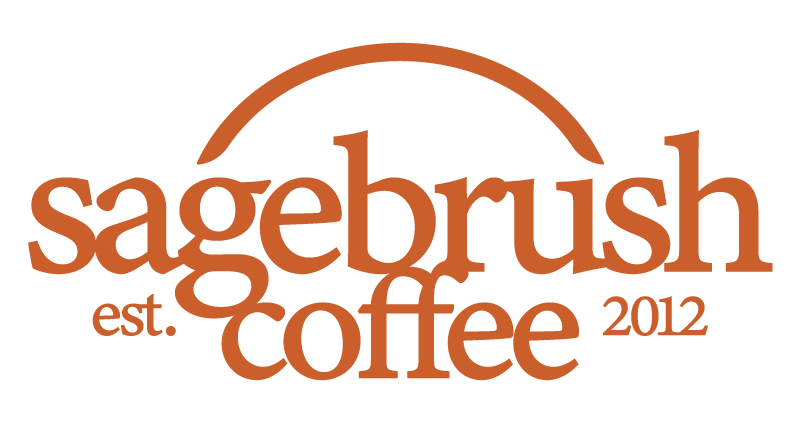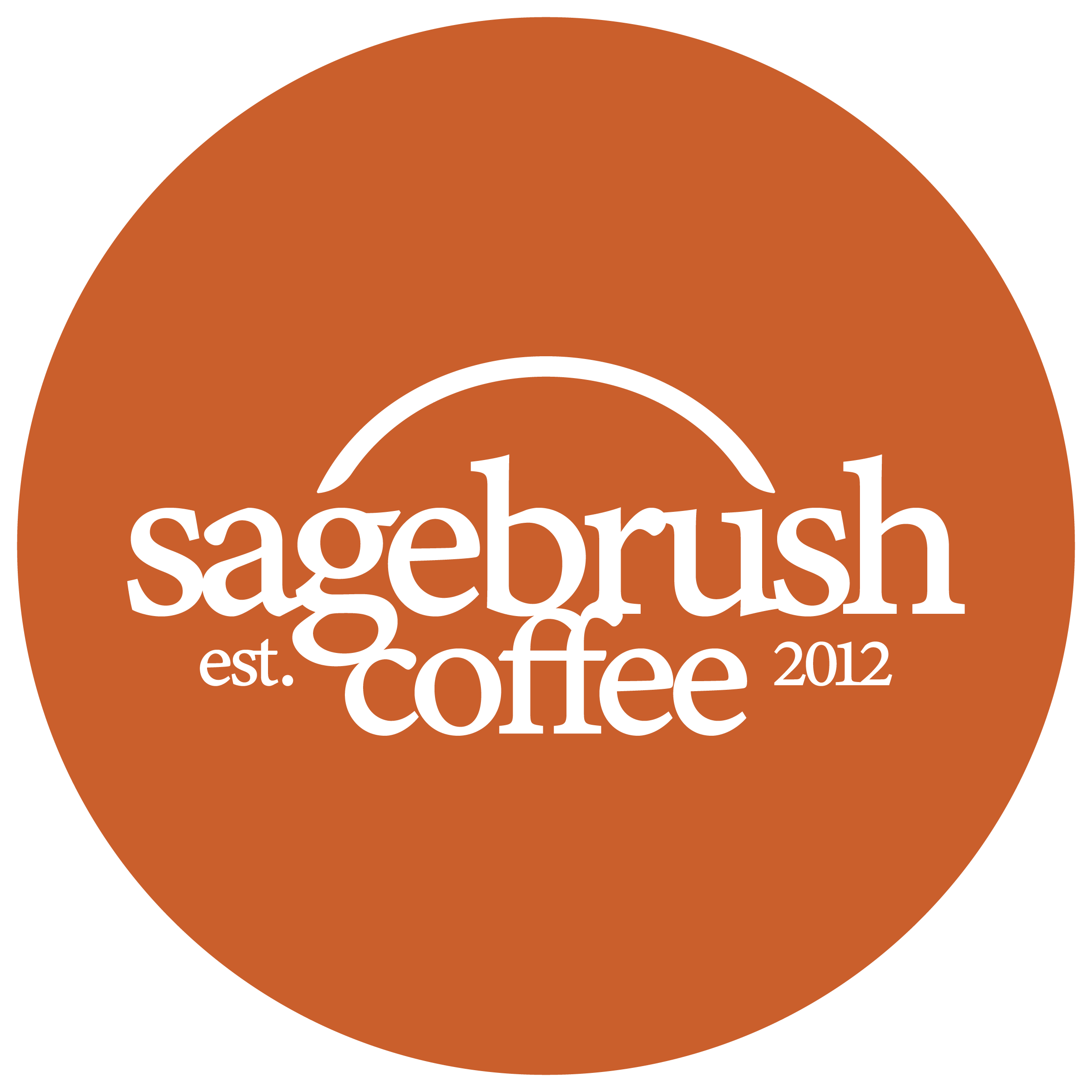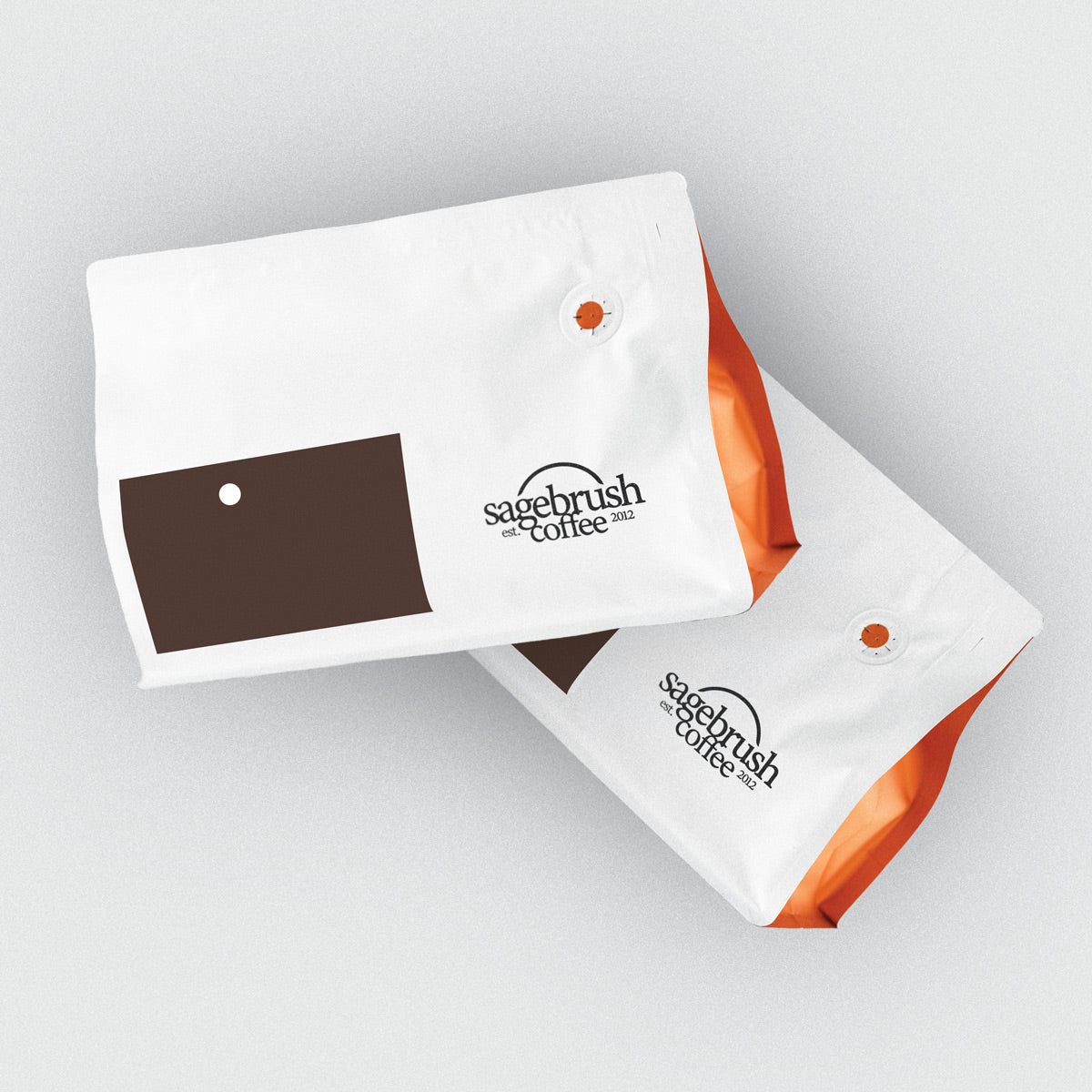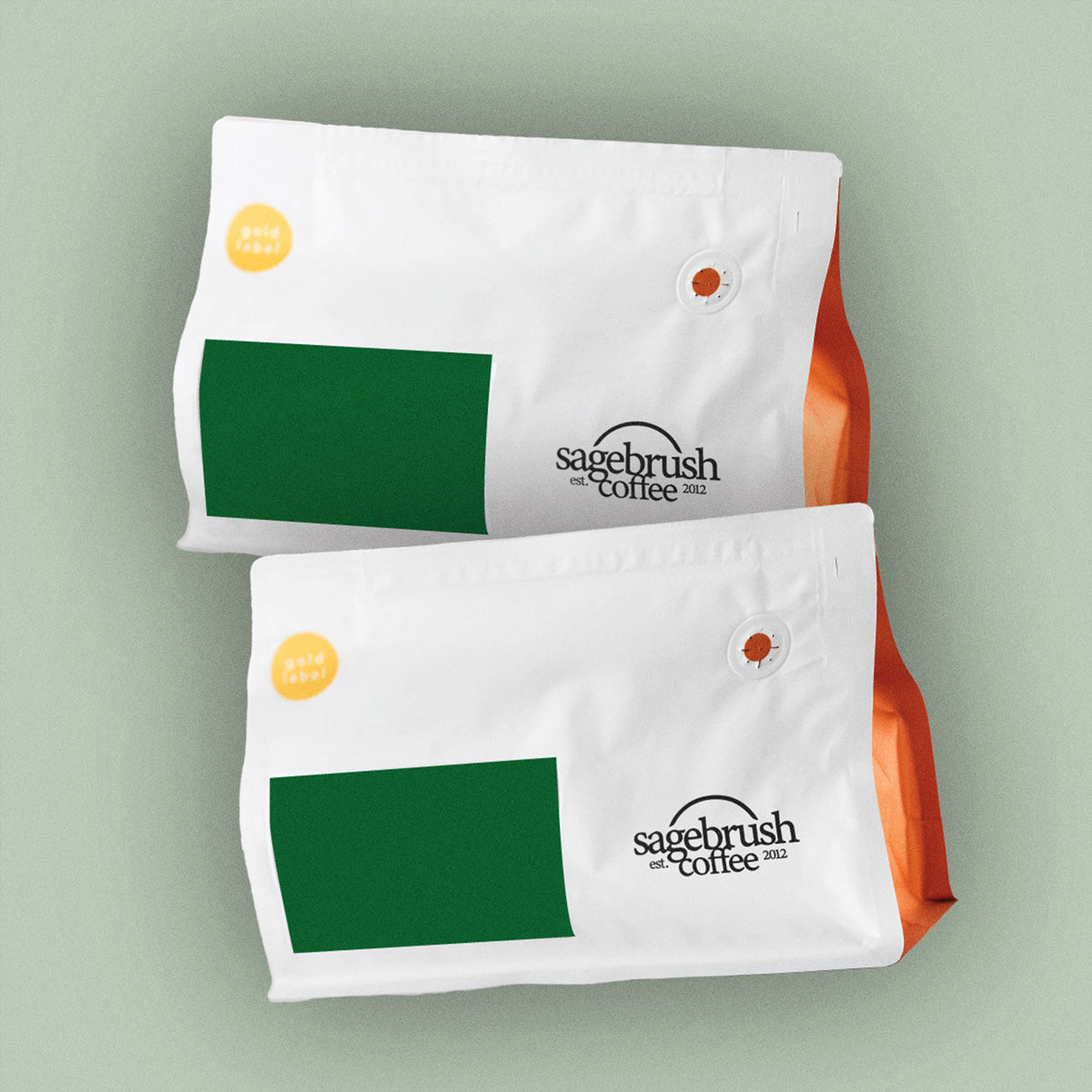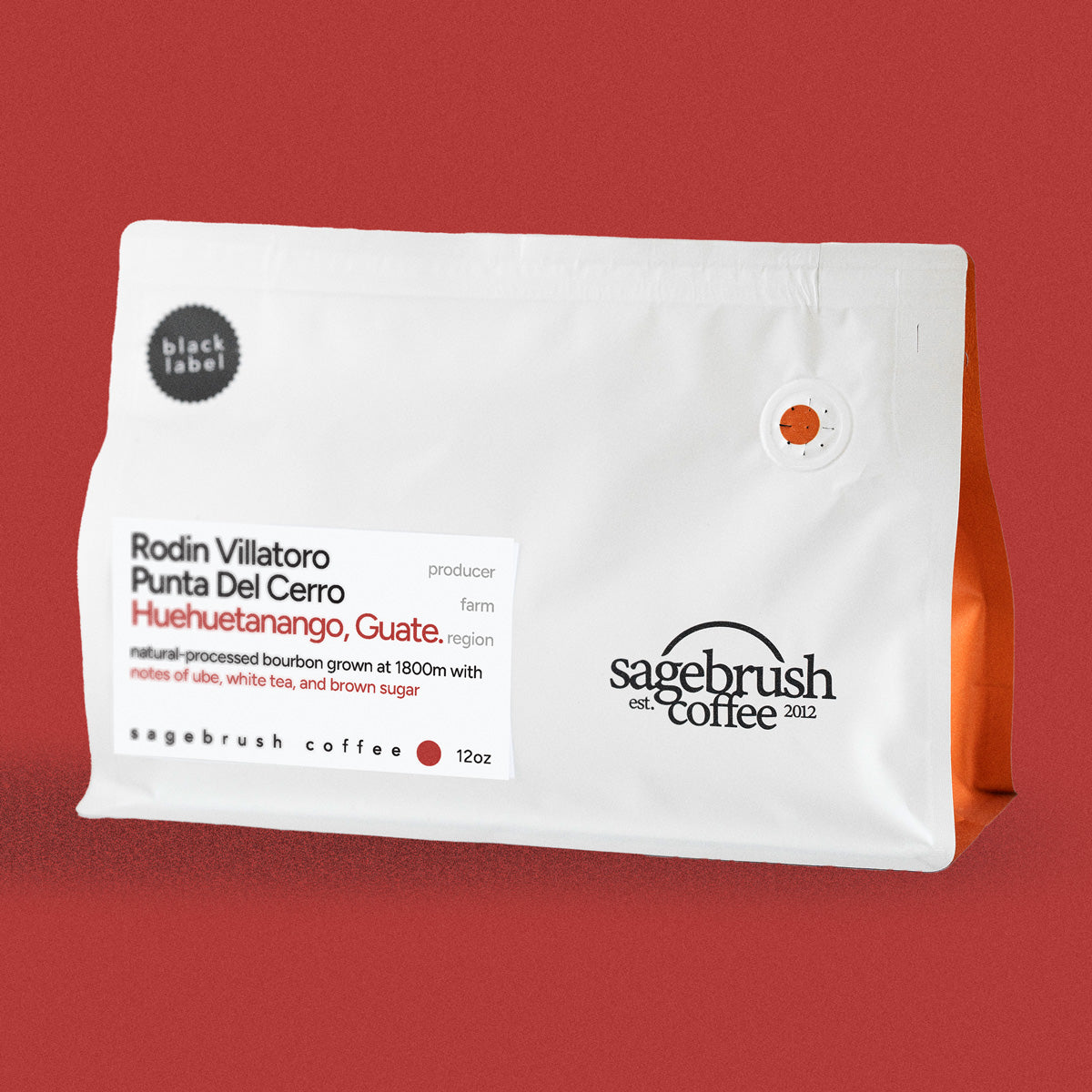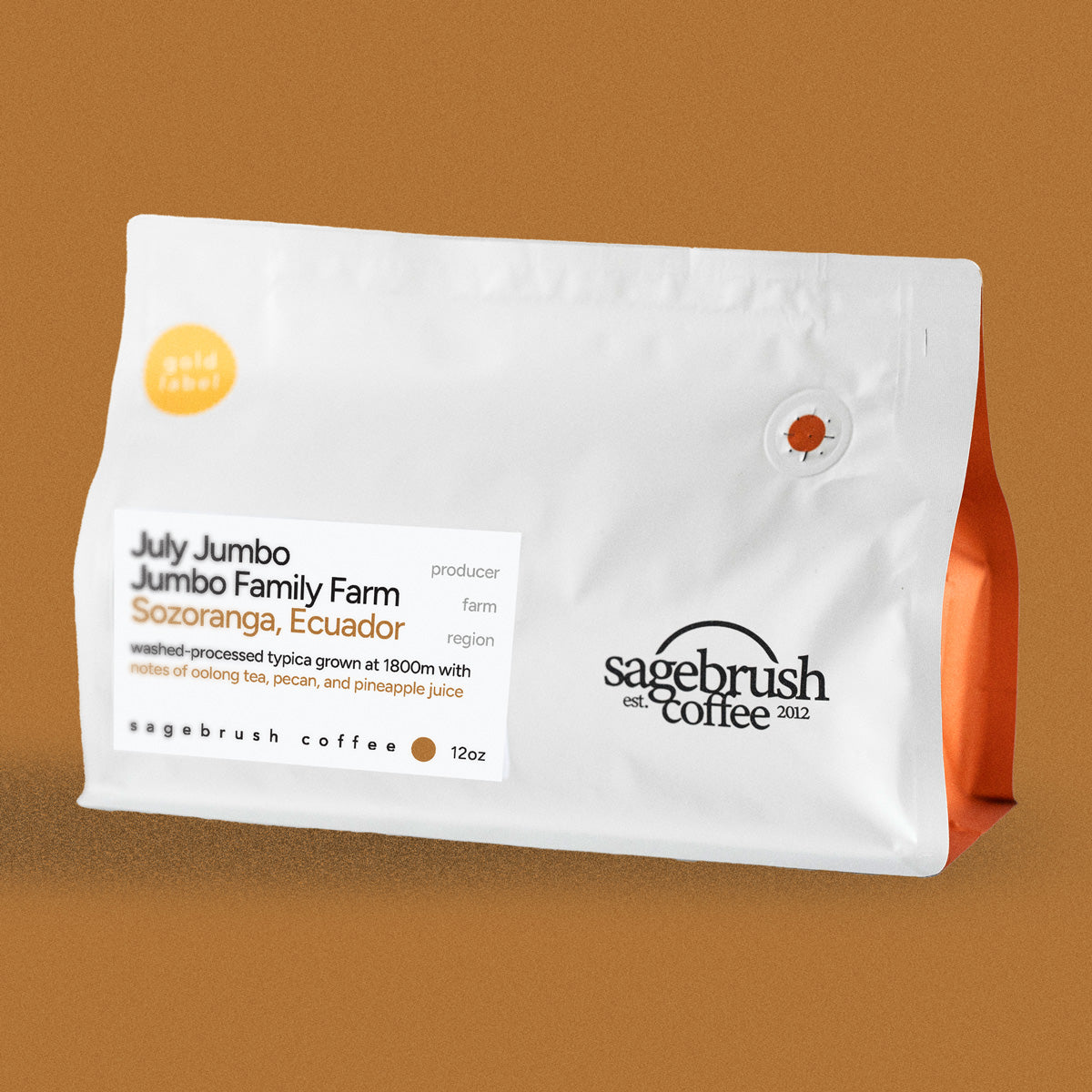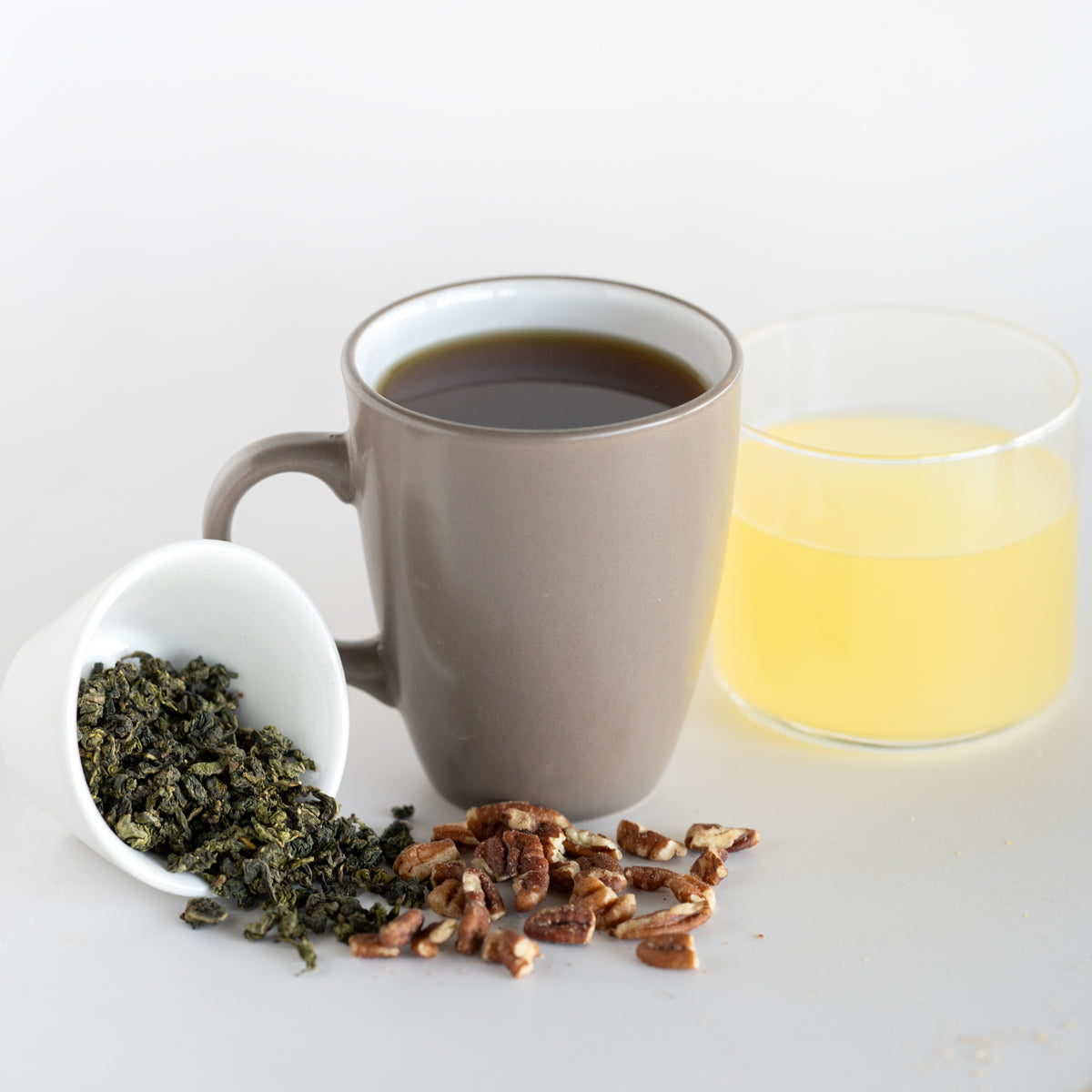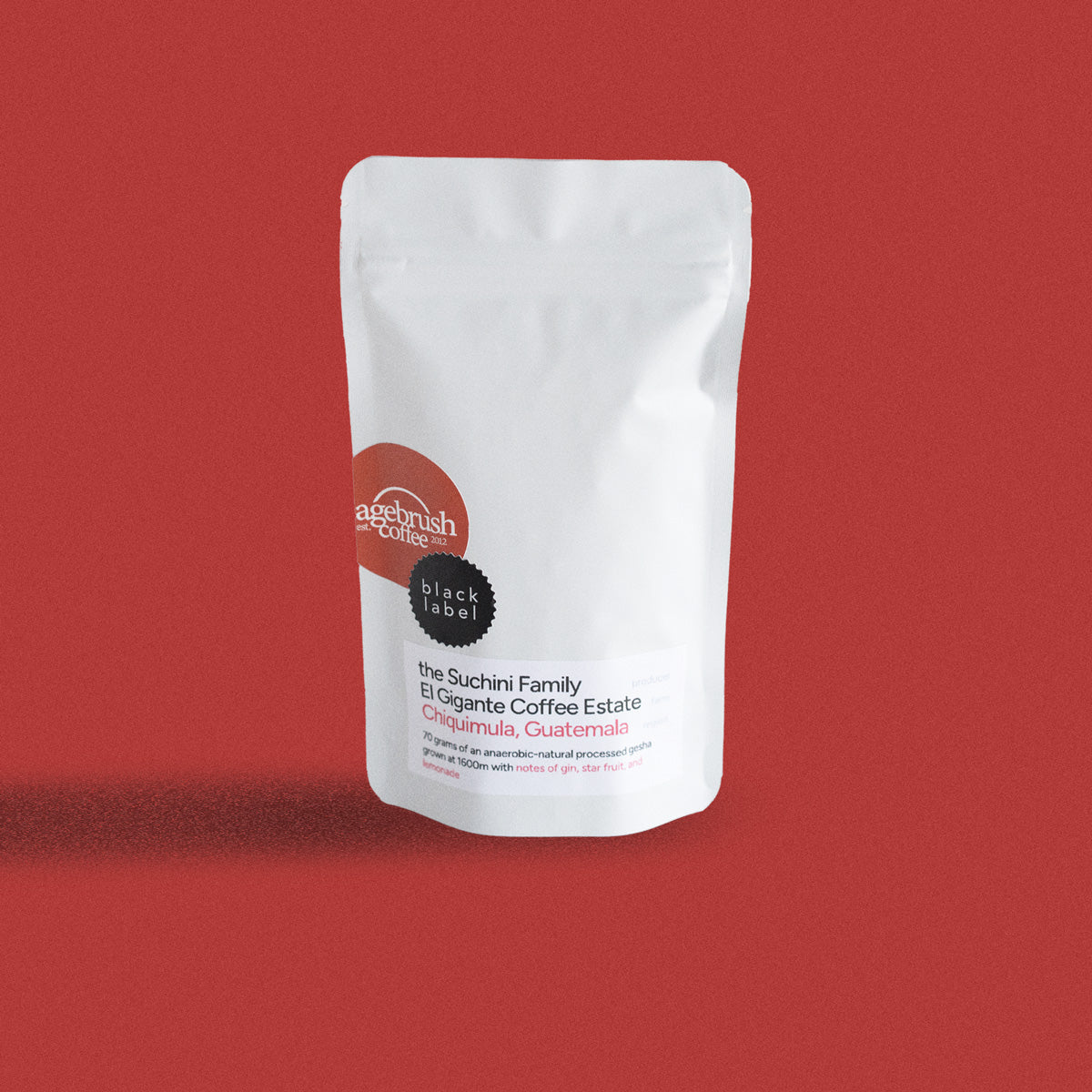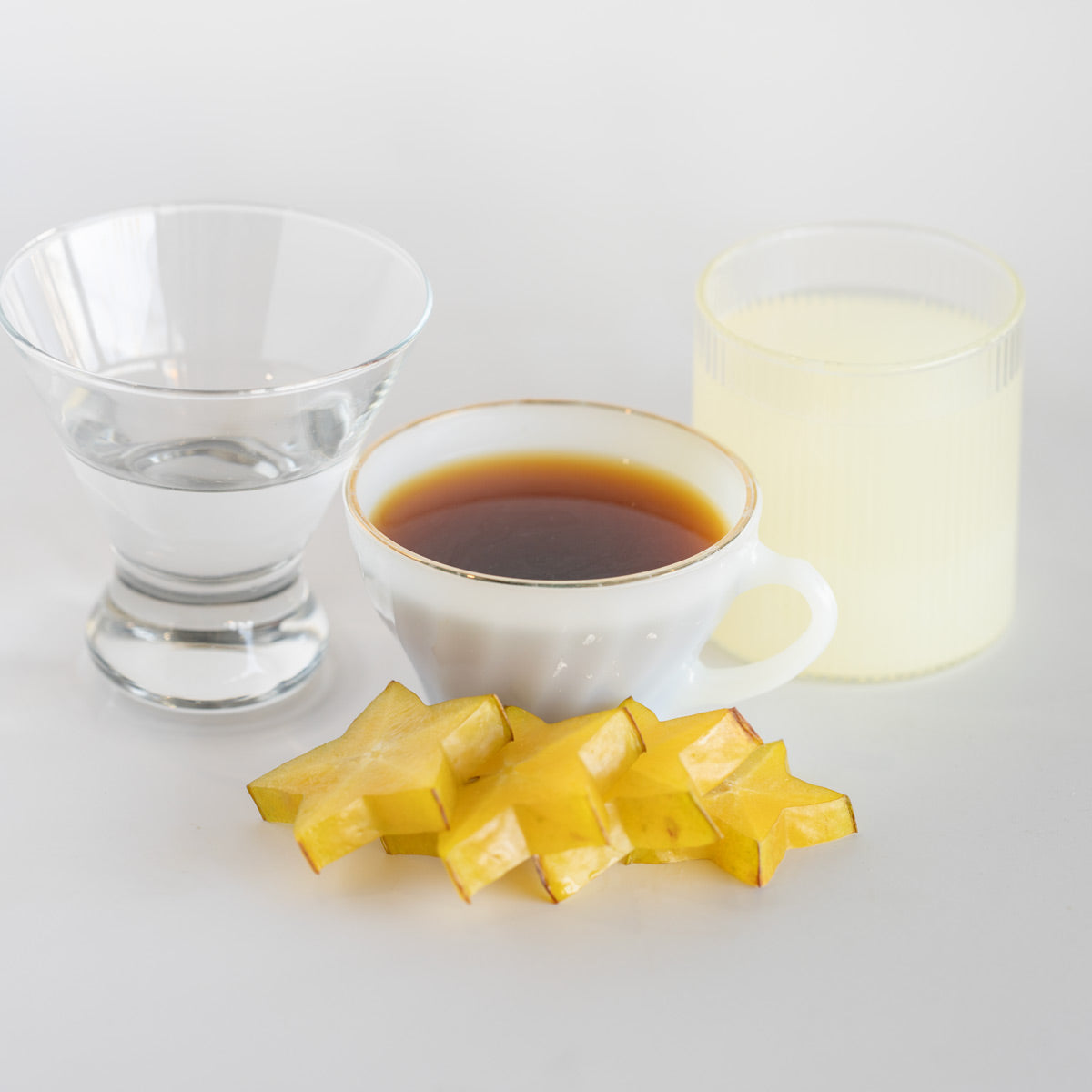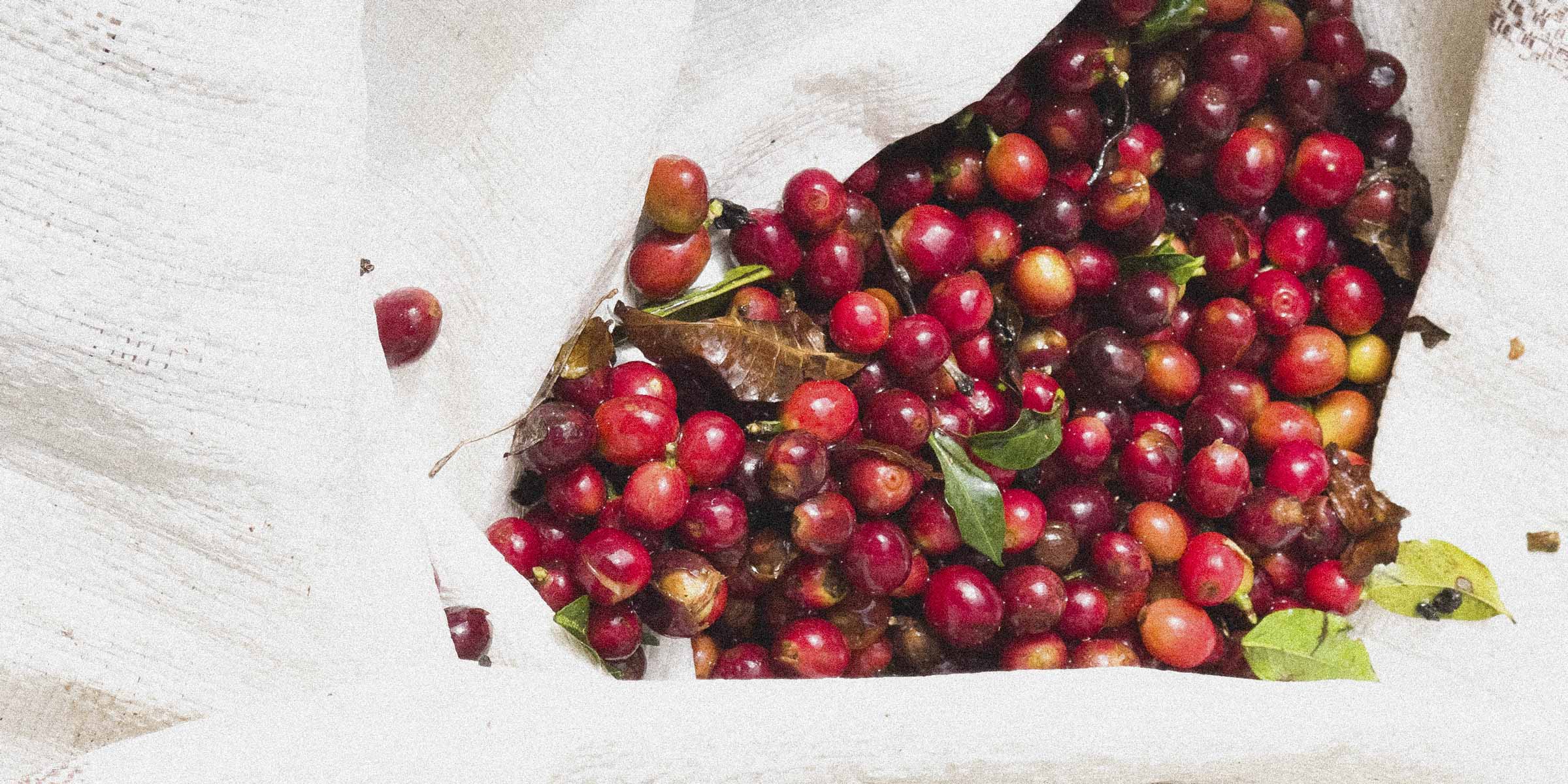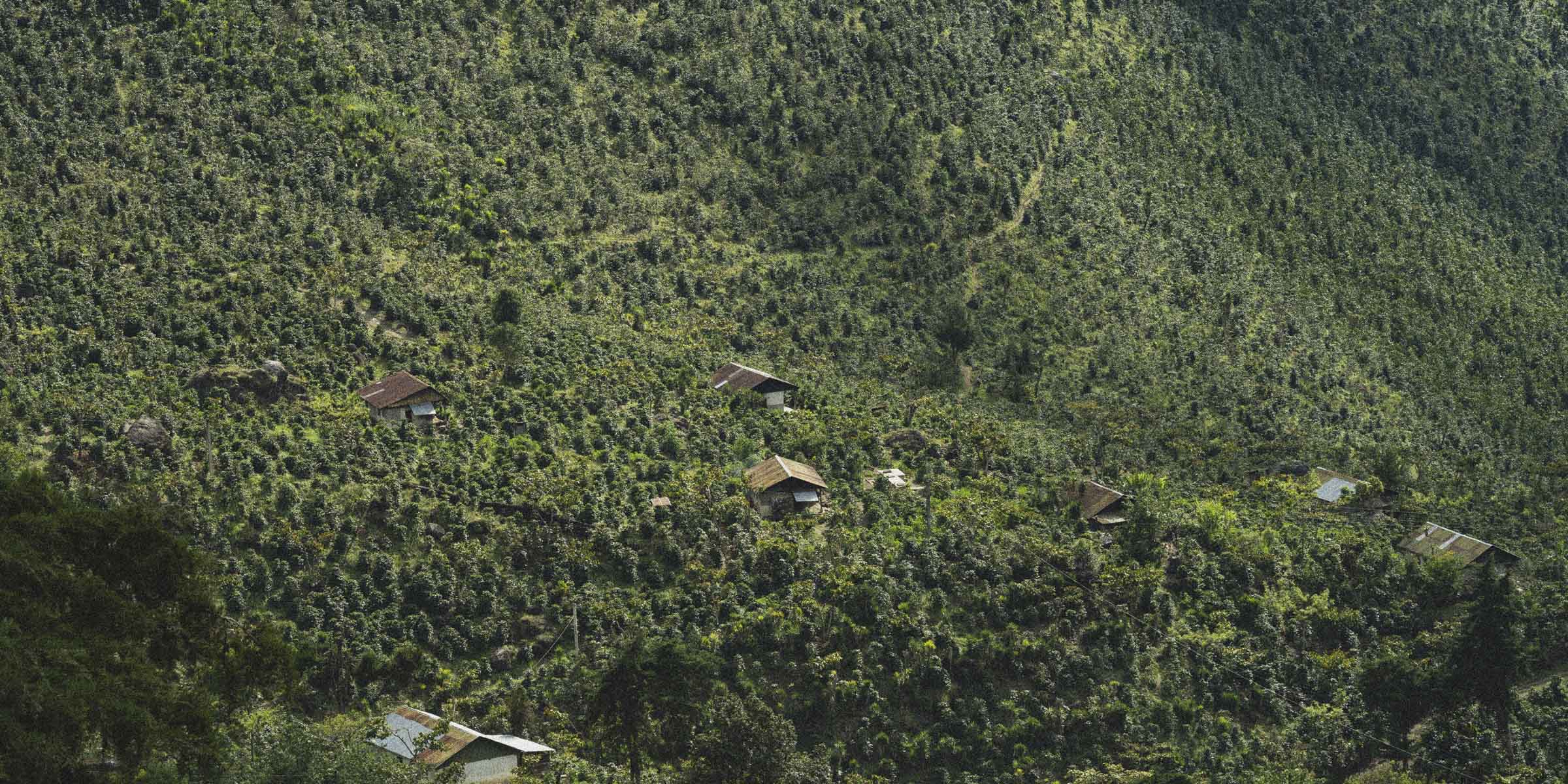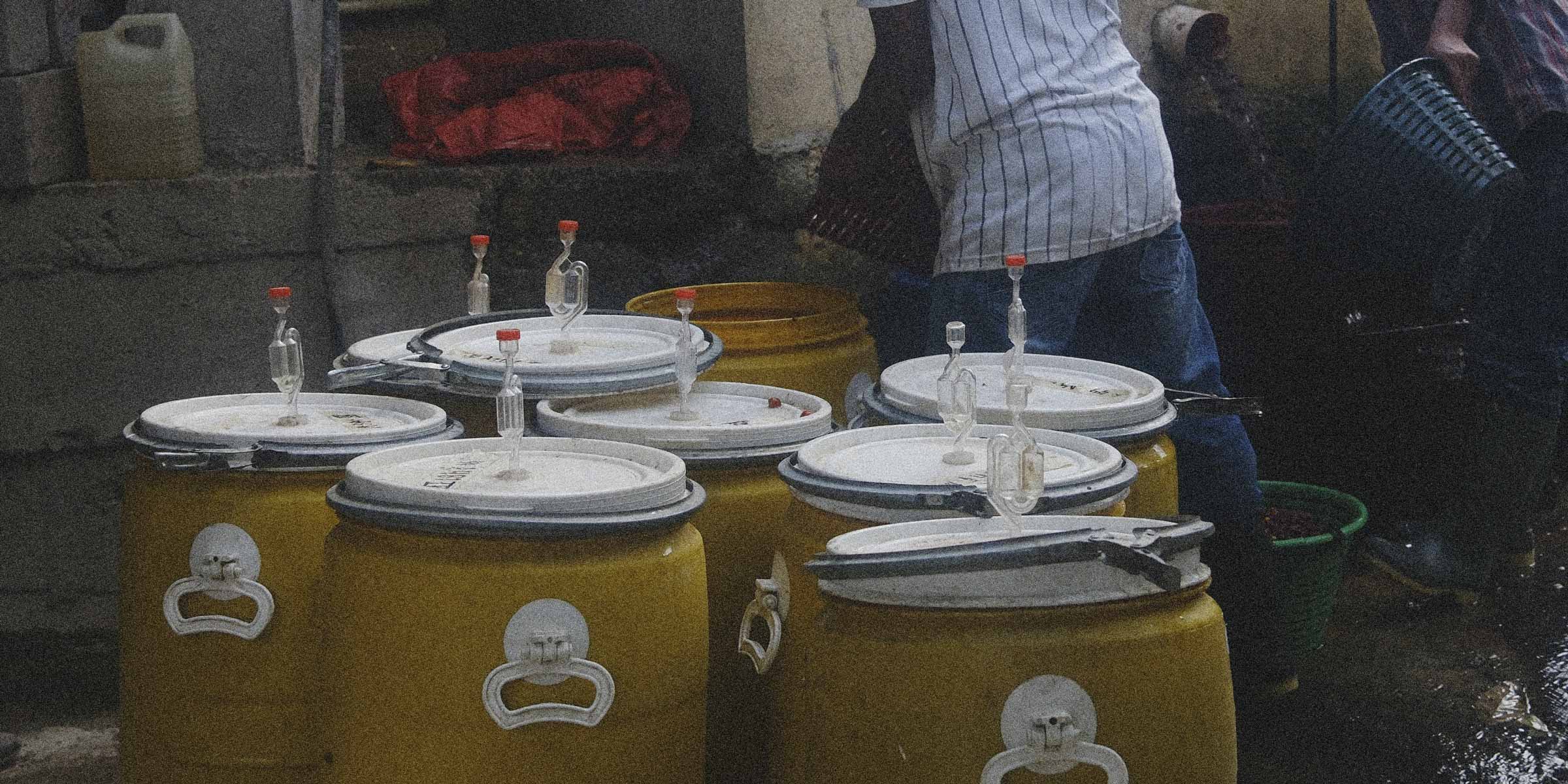
Many factors influence the beans you grind and brew for your morning cup of coffee. One of the most important is a coffee's variety. Varieties are essentially different versions of the coffee plant, each with a unique genetic makeup shaped by generations of development and care.
At Sagebrush, we exclusively source and sell varieties of the Arabica coffee plant. While all Arabica coffee comes from the same species, each variety has subtle genetic differences that affect the flavor, aroma, and quality of the final cup.
A helpful comparison is to think of coffee plants like apple trees. All apple trees belong to the same species, but the fruit they produce varies in texture, acidity, sweetness, and color. Think of the difference between a Granny Smith and a Red Delicious apple: one is tart and green, the other sweet and red. Coffee varieties work the same way. All coffee, whether Arabica or Robusta, originated from the Rubiaceae plant family. Over time, two main branches evolved: Coffea Arabica and Coffea Canephora (commonly known as Robusta).
Even within Arabica, some varieties can be lower in quality or more prone to disease. Others, however, stand out for their exceptional characteristics. One such variety is Gesha, a true superstar in the coffee world. It's known for its rarity, distinct flavor profile, and unmatched quality, making it one of the most exclusive and celebrated coffee varieties available.
Keep reading or watch our YouTube video.
Gesha Coffee: The Crown Jewel of Coffee Varieties
Gesha coffees are incredibly dynamic, known for their powerful and complex flavor notes. Often regarded as the royalty of coffee varieties, Gesha has broken records at auctions and competitions around the world. In August 2021, a specific lot of Gesha fetched an astounding $4,100 per unroasted pound. That’s not a typo, this coffee commands premium prices for good reason.
Since its spike in popularity about 15 years ago, many farms capable of sustaining Gesha have added it to their crops. At Sagebrush, we’ve been fortunate enough to get our hands on a few selections over the years and are always on the lookout for the next incredible lot. So, what exactly makes Gesha so special, and why is it so expensive?
Gesha's Beginnings
Gesha is a hybrid variety from the Arabica family, and although it’s often associated with Panama, it didn’t originate there. The variety traces back to 1931 in the Gori Gesha forest of Ethiopia’s Kaffa region. It wasn’t until the 1960s that Gesha began growing in Panama, after being introduced to Latin America via research institutions in Costa Rica.
Gesha or Geisha?
You may see this variety spelled either “Gesha” or “Geisha.” At Sagebrush, we use both. The name comes from the Gesha Mountain region in Ethiopia, where the plant was first discovered. Over time, the spelling “Geisha” gained popularity, likely to make it more familiar to Western audiences. Both versions are correct, pronounced the same way: gay•shuh.
From Hidden Gem to Global Phenomenon
In the 1950s, Gesha was brought from Ethiopia to Costa Rica for research and cultivation at the Tropical Agricultural Research and Higher Education Center. It eventually made its way to Panama, where it was planted at the now-famous Hacienda La Esmeralda farm. After years of development, the farm introduced Gesha at the 2004 "Best of Panama" auction and the coffee world was forever changed.
Judges were stunned by Gesha’s unique, vibrant flavor. The variety quickly skyrocketed to international fame, with prices following suit. By 2018, Gesha beans were selling for $803 per pound. Today, depending on origin, processing, and quality, the price can vary widely. Some coffee shops might offer a cup for $9, while others charge upwards of $75. Both are high for a single cup, but the quality difference can be substantial.
Gesha beans are famous for their floral and fruity flavor profile, delicate yet vibrant. Depending on where they’re grown and how they're processed, tasting notes can include mango, guava, papaya, and citrus. This unique complexity ties back to the variety's Ethiopian roots and has made Gesha one of the most sought-after coffees in the world.
Is It Worth the Price?
Several factors contribute to Gesha’s high price point:
-
Challenging Cultivation: Gesha plants require high altitudes (typically 1,700–1,950m) and precise growing conditions.
-
Low Yield: The plant has a thinner foliar system, reducing photosynthetic efficiency, and a weaker root system, limiting water and nutrient intake. As a result, it produces fewer beans than other varietals.
-
Labor-Intensive Harvesting & Processing: Timing is critical, and post-harvest care must be meticulous to preserve its delicate flavors.
With Gesha, it’s all about quality over quantity. The Panama Gesha variety consistently earns top scores from the Specialty Coffee Association (SCA), often scoring above 90 on their 100-point scale.
At Sagebrush, we like to compare high-end coffee to wine. Sometimes you grab a $10 bottle to pair with a home-cooked meal. Other times, you invest in a $100 bottle at a fine restaurant. Coffee works the same way, except you can enjoy a bag of premium beans over multiple brews. Want to dig into this comparison more? Check out Jonathan’s blog post: A Case for Expensive Coffee.
Gesha has come a long way, from its origins in a remote Ethiopian forest to being celebrated on the world stage. Its exceptional taste, rarity, and cultivation challenges have cemented its status as one of the most prestigious coffee varieties available.
Whether you're a seasoned coffee enthusiast or just starting to explore specialty beans, trying a well-sourced Gesha can be a truly unforgettable experience.
Written by Zoë Maiden
